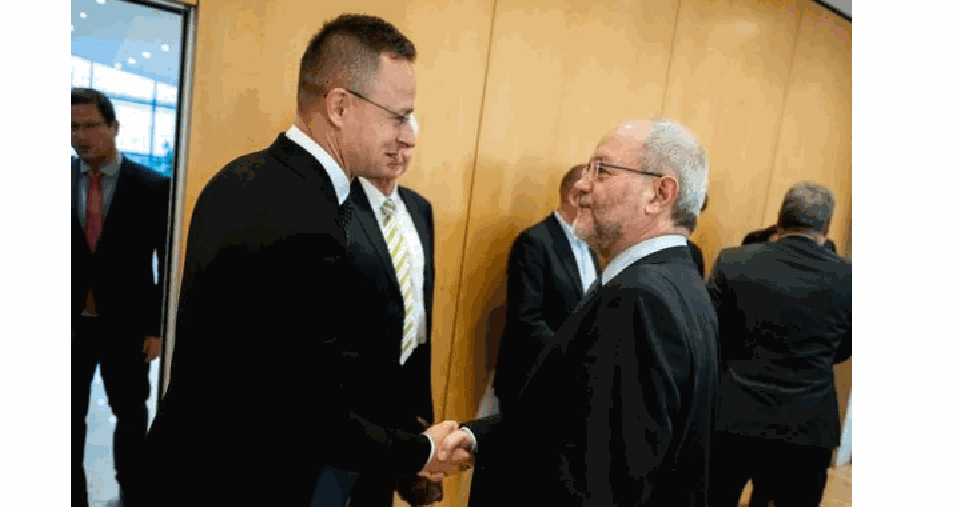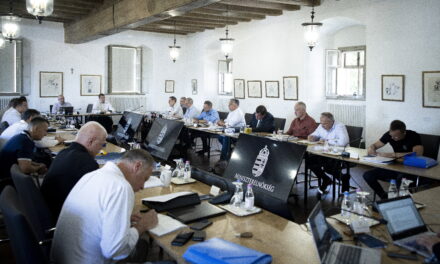Péter Szijjártó also emphasized that the government will continue to reject the plan for a global corporate minimum tax, the implementation of which would mean that the corporate tax would have to be increased by 6 percentage points.
Industry and Innovation Minister László Palkovics also participated in the forum's panel discussion with German business leaders, who emphasized that the government "really doesn't like" and only introduced the so-called extra profit taxes out of necessity, which do not discriminate against foreign-owned companies and will be abolished as soon as possible.
In this context, Thomas Spannagl, one of the German owners of Duna-Dráva Cement Kft., which operates cement factories, and the CEO of Schwenk Zement, explained that they cover 40 percent of Hungarian consumption, they have been active in the country for several decades and were "very happy" until the introduction of the extra profit tax.
This burden "directly and seriously negatively" affects the company, it even threatens its financial stability, explained Thomas Spannagl, adding that the fact that importers are not burdened with such a tax further complicates their situation. Philipp Haussmann, head of the interest representation group (Ost-Auschuss der Deutschen Wirtschaft), which brings together actors of the German economy operating in the Eastern European markets, emphasized that the government must take seriously the concerns of German businesses operating in sectors classified as strategic and pay attention to the provisions of European Union law.
Hans-Peter Kemser, the manager of the BMW factory under construction in Debrecen, emphasized that all the conditions in the eastern Hungarian city are ideal for the construction and operation of the most modern plant of the German car manufacturing company.
As he said, "BMW's future begins in Debrecen". The plant represents a "completely new approach", not only in terms of its products, but also in the fact that it will operate exclusively with energy produced from renewable sources.
In this regard, László Palkovics pointed out that Hungary is one of the most "high-tech countries" in the world, that is, it is at the forefront in the application of the most modern production technologies. However, this should not be enough, in addition to production, progress must also be made in the field of research and development.
Péter Szijjártó added that Hungary is the "flag bearer" in the "revolutionary" transformation of the vehicle industry, of which Debrecen is the best example, since not only electric BMWs will be produced in the city, but also through the development of the largest domestic investment of all time, the Chinese CATL also batteries required for the use of electric cars.
Source: Magyar Hírlap
Image: Facebook












